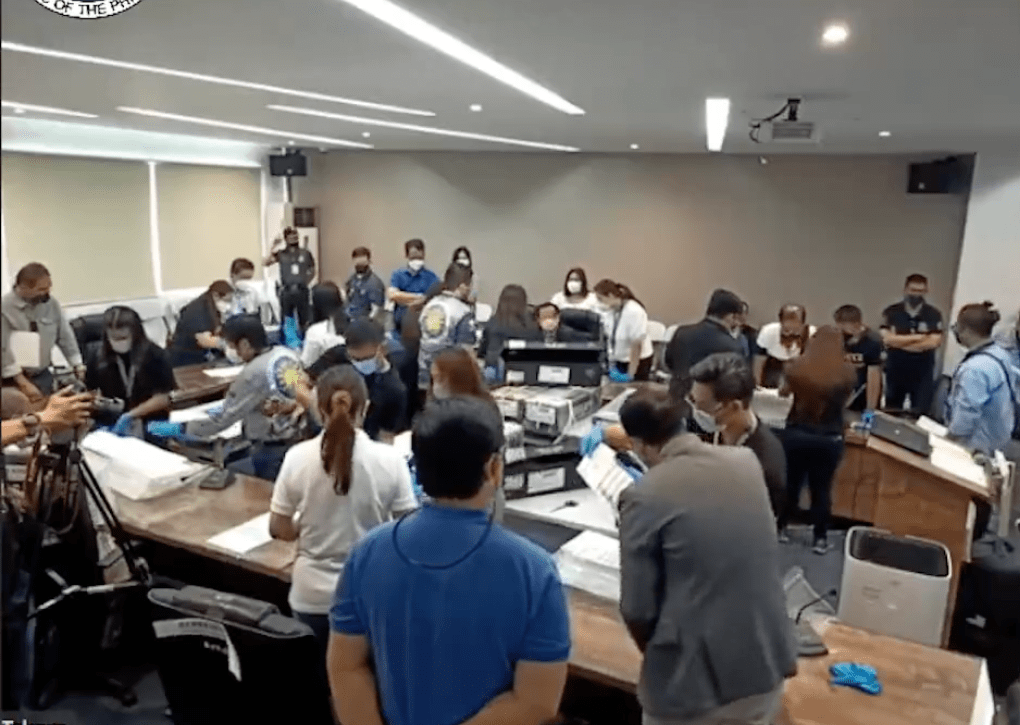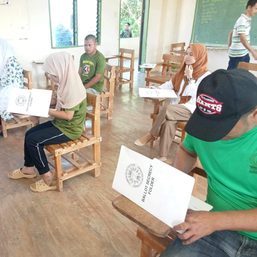SUMMARY
This is AI generated summarization, which may have errors. For context, always refer to the full article.


MANILA, Philippines – The Commission on Elections (Comelec) conducted an unprecedented random inspection of ballots which was participated in by election observation groups and members of the media, following criticisms of alleged lack of transparency in the poll body’s pre-election operations.
On Thursday, March 24, ten ballot boxes selected by accredited citizens’ arms and political parties from the Comelec’s warehouse in Pasig and National Printing Office basement in Quezon City were brought to the NPO’s conference room, where groups were allowed to randomly choose ballots for inspection.
The Comelec staff then gave observers a UV lamp, so that they could check whether security features on the ballots were in place, and if there were no unwanted marks.
Observers were given disposable gloves to make sure that the ballots would not be tampered.
The randomly selected ballots were also fed to a vote-counting machine (VCM) to check if they would be recognized.
Comelec Commissioner George Garcia said everything went smoothly during Thursday’s testing of the ballots.
“No glitch whatsoever transpired in today’s testing,” said Garcia, who was joined by Chairman Saidamen Pangarungan and Commissioner Marlon Casquejo during the event. “A lot of things still need to be done to gain the trust of our people on the institution and the electoral process.”
The Comelec was previously criticized for not giving election stakeholders access to the NPO, where 67.4 million ballots were being printed for the 2022 elections.
The poll body said strict pandemic restrictions were the reason why it had to postpone observation by various groups of the printing process earlier this year, when Metro Manila and other parts of the country grappled with a COVID-19 surge.
The Comelec later apologized for the observer blackout, and started a livestream of the NPO operations.
Election lawyer Romulo Macalintal, who wrote to the Comelec last week asking it to conduct a random sampling of ballots amid printing transparency issues, was present during Thursday’s event at the NPO.
Macalintal previously proposed the random ballot inspection as a compromise, after asserting that the Comelec’s printing of ballots without the candidates’ observers violates their constitutional rights to due process.
Under the Omnibus Election Code, the Comelec shall allow entities designated by the poll body to observe the proceedings of the printing committee in connection with the printing of the official ballots.
“I’d like to thank the Commission for being so transparent. I think this is the first time the Comelec allowed political parties and candidates to observe a random sampling of the ballots,” Macalintal said on Thursday.

As of Thursday, 58.8 million ballots, or 87.2% of the total number needed for this year’s polls, have been printed. Some 42 million ballots are ready for shipment when the delivery begins on April 20. – Rappler.com
Add a comment
How does this make you feel?









There are no comments yet. Add your comment to start the conversation.